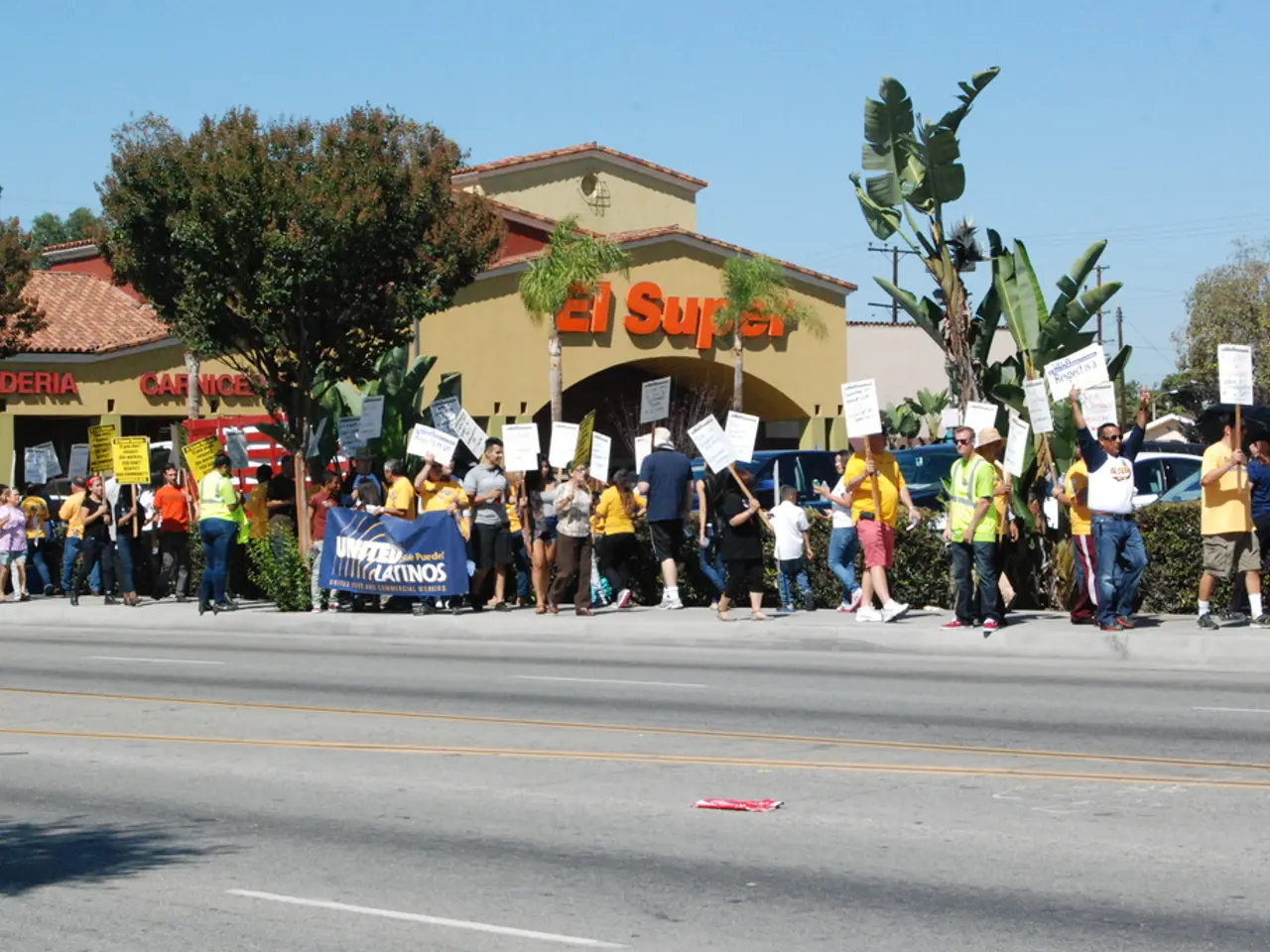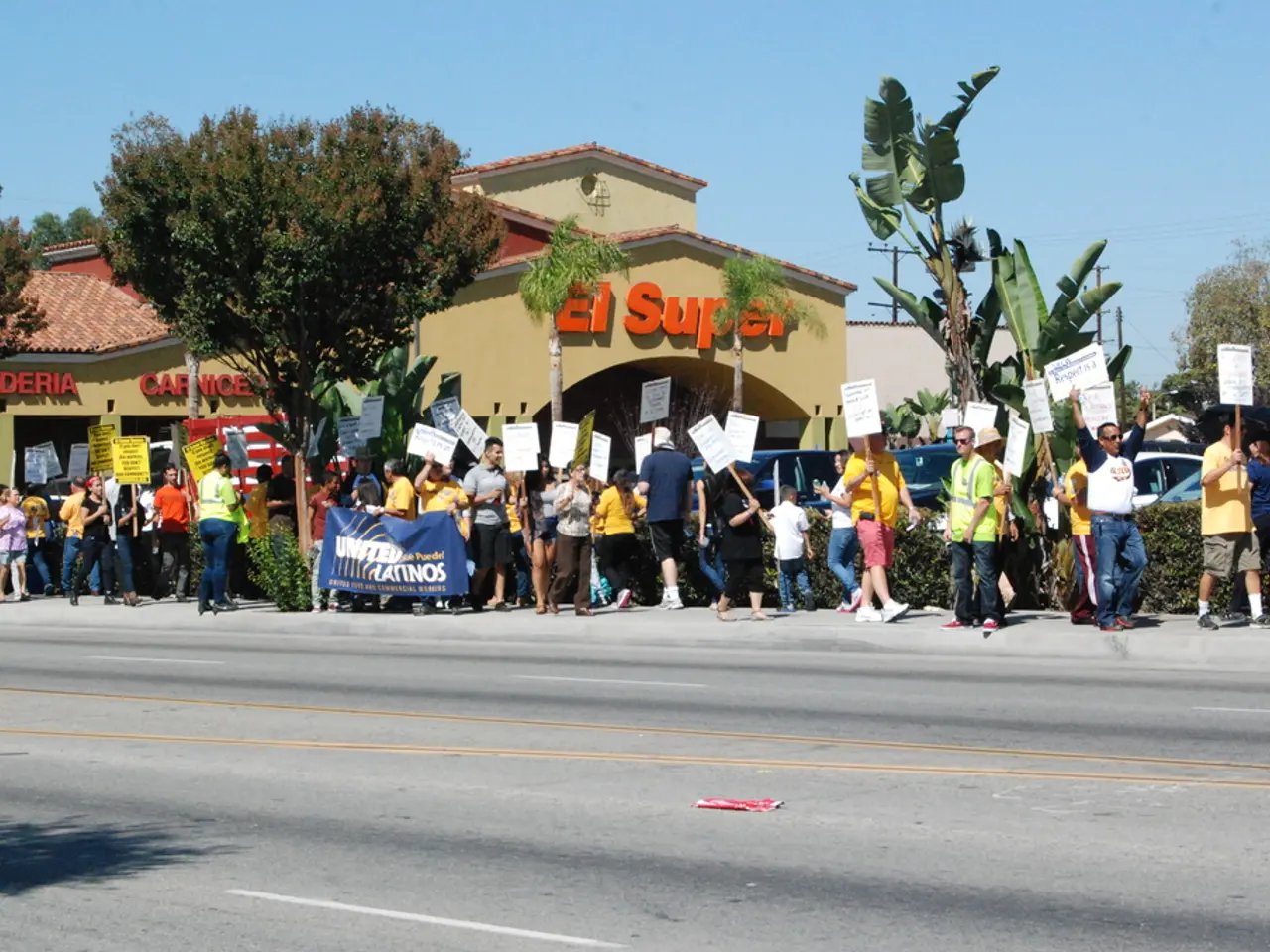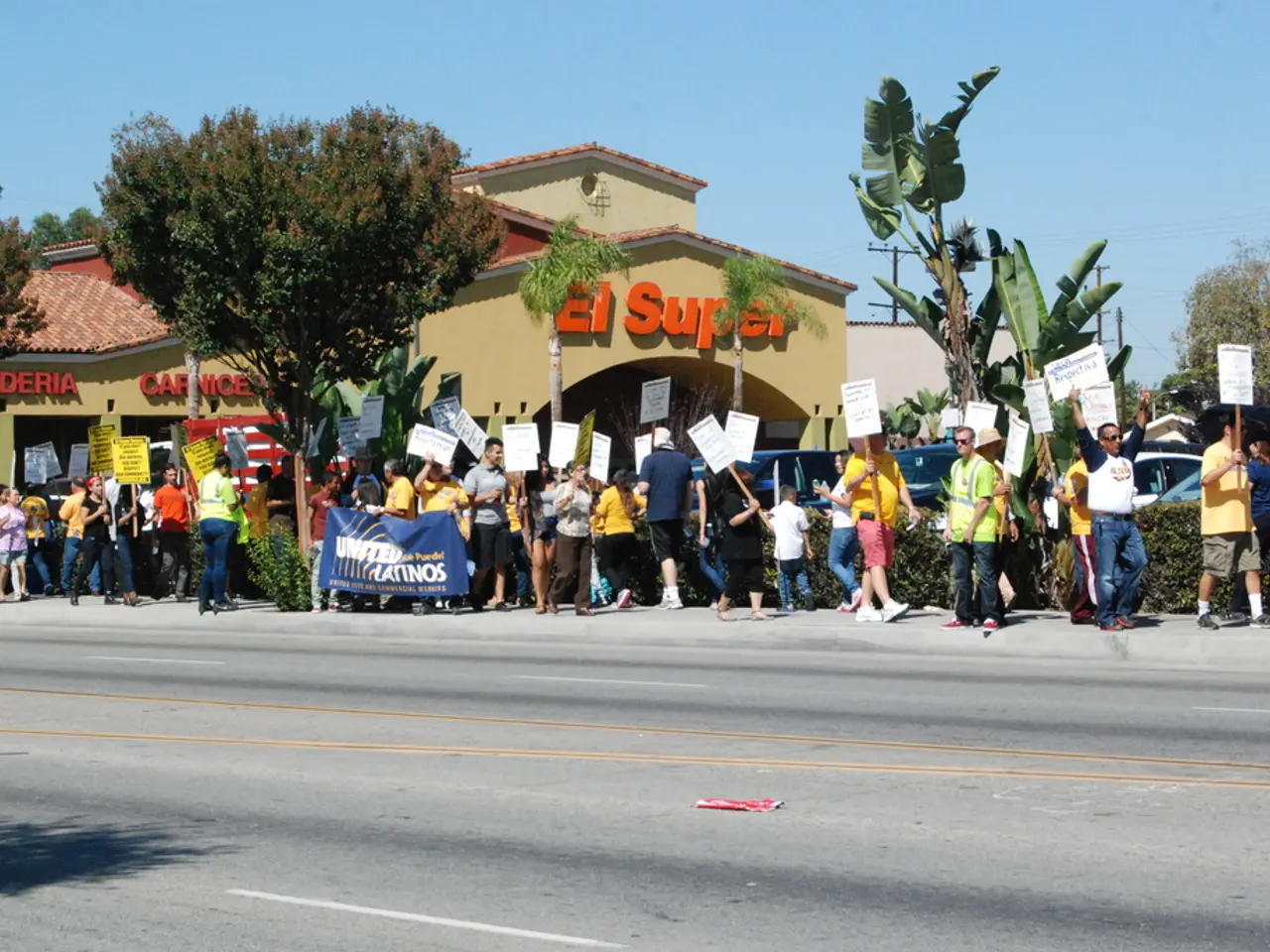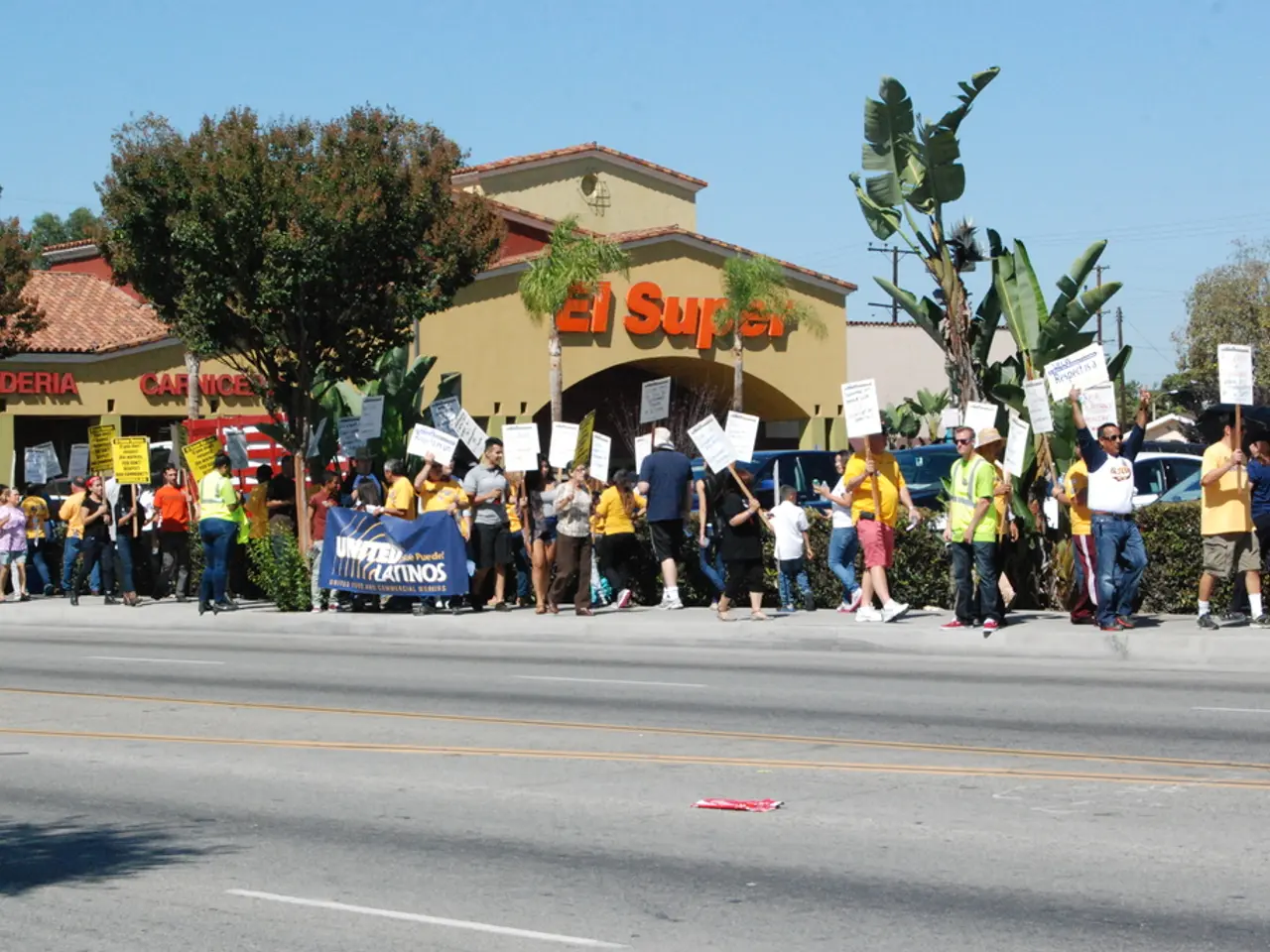Proposal demanded for a regulatory directive in relation to the commission's jurisdiction
In the midst of summer, Chancellor Friedrich Merz's approval rating has taken a significant dip, according to a recent survey by YouGov for the German Press Agency. The poll, conducted between July 11 and 14, 2025, involved 2,192 eligible voters and revealed that only 35% of Germans express satisfaction with Merz's performance, marking a decline from 42% just weeks earlier[1].
The survey also shed light on the public's perception of the federal government, with a majority (65%) believing it is failing to address the country's most pressing problems[1]. This includes the government's refusal to lower electricity taxes, a topic generating much political debate. The poll results suggest a notable disconnect between official statements and public sentiment, indicating that despite Merz's assertion that his government is "one of the best federal governments in decades," this view is not widely reflected[1].
The political landscape remains volatile, with opposition parties gaining ground. The far-right AfD remains strong at 23%, while the SPD, Merz's coalition partner, continues to lose support and would receive only 13% of the vote if an election were held now[4]. The Greens and the Left Party trail at 12% and 10%, respectively[4].
Despite a modest increase in voter support for the CDU/CSU alliance—rising to 30% in early July, reflecting a slight gain since late June—this does not translate into broad satisfaction with the government as a whole[4]. The SPD's decline may be partly attributed to Merz's statement shortly after taking office that citizens should feel improvements by the summer[3]. However, 32% of eligible voters believe that Germany has changed for the worse since Merz took office, 22% perceive an improvement, and 37% see no change[2].
The survey did not indicate any significant improvement in public support for the federal government, as only 17% agreed that it is one of the best governments of recent decades[1]. Among Union supporters, the majority (54%) still see an improvement in the country's situation, but a significant portion (41%) do not agree with Merz's praise of the government as one of the best in recent decades[1].
The survey results also suggest that the decision to exclude private households from the electricity tax reduction may not be popular among the German population, with 69% of Germans having no understanding for this decision, while 23% find it somewhat understandable[1]. This decision has been initially implemented only for certain companies, agriculture, for financial reasons[1].
In pre-election polling (December 2024–February 2025), Merz was the preferred chancellor for 32% of voters, ahead of other major candidates, but this lead has not insulated him from recent declines in approval[3]. The disconnect between Merz's self-assessment and the public mood is underscored by the latest data showing declining satisfaction and growing criticism of his government’s policies[1].
| Metric | Early July 2025 | Trend | |----------------------------------|-----------------|---------------------------| | Merz’s approval rating | 35% | Sharp recent decline | | Gov’t satisfaction | 38% | Down, majority dissatisfied| | Gov’t failing on key issues | 65% | Rising | | CDU/CSU voter support | 30% | Slight increase |
As Merz enters the summer break, he faces a challenging political landscape, with a clear majority now critical of the government’s performance and a significant drop in his personal approval[1]. The political landscape remains volatile, with opposition parties gaining ground and the SPD continuing to lose support within the governing coalition[4]. The survey results suggest that the public's dissatisfaction with key issues, such as the electricity tax, may have contributed to Merz's decline in approval.
- The survey reveals that a majority of Germans (65%) believe the federal government is failing to address the country's most pressing issues, such as the controversial electricity tax policy, which has generated significant political debate.
- The survey data indicates a disconnect between Chancellor Friedrich Merz's assertions of his government being "one of the best federal governments in decades" and the public sentiment, with only 17% agreeing that it is indeed one of the best governments of recent decades.




